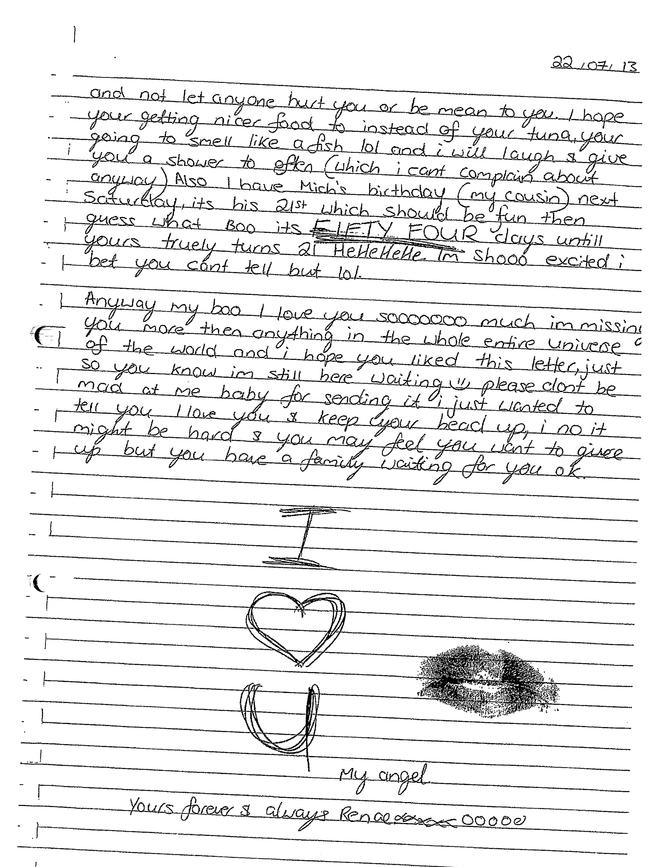Catfishing victims call for legal reform on romance scam
Complaints to the nation’s cyber watchdog have doubled as predators use online dating platforms to pick victims. It comes as women join call to criminalise the behaviour.
NSW
Don't miss out on the headlines from NSW. Followed categories will be added to My News.
- ‘Absolute hell’: Cruel catfishing stunt key to suicide inquest
- Woman behind alleged catfish romance faces family
Michael Castillio seemed like a dream catch — always ready to chat, happy to send flowers and looking like a Hollywood heart-throb — but Kylie Johnson didn’t realise she had hooked a catfish.
It is only with the benefit of hindsight that Ms Johnson, the Sydney woman who struck up a romance with “Michael” online, saw the red flags.
She became a victim of catfishing, a cruel scam that involves using a fake identity to lure someone into a relationship.
Now she, other victims and cyber experts are calling for laws to be changed to make catfishing a crime.


“Michael” claimed he was in Australia on deployment with the US Army, spoke with an American accent and his profile picture resembled Channing Tatum — but he would never talk on Skype or Facetime, only voice calls.
“When you are engaged in it, you don’t want to see those signals or believe them,” the 37-year-old said.
MORE FROM AVA BENNY-MORRISON:
Female inmates cause damage in prison rampage
Nomads bikie spent bushfire funds on drugs: Police
With dating apps like Tinder and Plenty Of Fish now a normal part of finding love, reports of catfishing are also on the rise.
Statistics released to The Sunday Telegraph reveal catfishing complaints to the Australian Competition and Consumer Commission more than doubled last year, from 22 reports in 2018 to 46 in 2019.
Overall, romance and dating scams, which covers catfishing, cost Australians more than $28 million last year.
Even then, experts warn catfishing is almost certainly under-reported because victims are too embarrassed to come forward.
“The motivations of catfishers range from general troublemaking, to hurting, humiliating and embarrassing people, enacting revenge and to scamming money,” University of Melbourne senior lecturer Dr Lauren Rosewarne said.
“It is almost impossible to get data on which kind is more prevalent because these kinds of crimes are largely unreported.
“Individuals feel embarrassed and unconvinced that law authorities are able to do anything.”
Queensland woman Susannah Birch spent years chatting to a man she met on an online chatroom and sent him intimate photographs.

When she found out he was not who he purported to be, she went to the police but was told nothing could be done.
“Police said we can’t prosecute because it falls outside the boundaries of multiple prosecutable offences,” she said.
“I definitely think instead of picking and choosing we need one legislation crafted for this issue.”
While catfishing is rooted in deceit and manipulation, the behaviour often falls short of a criminal offence if an advantage isn’t obtained.
Last month a NSW coroner was asked to consider whether the act of catfishing should become a crime after presiding over a heartbreaking inquest into the suicide of Sydney woman Renae Marsden.


Ms Marsden, 20, took her own life after her best friend assumed the identity of a love interest and pretended they were in a relationship for two years.
While some catfishing is emotionally motivated, in Ms Johnson’s case, it was financial.
Ms Johnson started talking to the man who called himself Michael Castillio on dating site Oasis Active in 2012.
He told her he was based in Townsville and sent long-stemmed red roses and hampers to her home in Sydney.
“I thought it was legitimate because the one thing we know about scammers is they are one way,” she said.
Over two years, “Michael” managed to extract $2500 from Ms Johnson after convincing her his daughter was in hospital or needed medication and he was a struggling single dad.

It wasn’t until Ms Johnson turned up at Michael’s home in 2014 and was told he didn’t live there that she realised she had been catfished and Michael was actually a scammer based in Africa.
“I was crushed,” she said.
“We had been communicating regularly. I had been telling people I had a boyfriend in the army. It was like I had a rug ripped out from underneath me.”
Ms Johnson had suicidal thoughts and said the ordeal impacted her ability to trust people.
“I think there needs to be some sort of laws around it because, psychologically, it can really ruin a person,” she said.
“I can put up my hand and say it nearly did me.”
The eSafety Commission said, since 2017, it had received more than 1800 adult cyber reports, including stalking, impersonator accounts and identity theft but only a small number related to catfishing.
“Catfishing is a reprehensible form of online enticement and manipulation that can cause lasting harm to its victims,” eSafety Commissioner Julie Inman Grant said.
“Always be on your guard if someone randomly makes contact online out of the blue, just as you would be in real life if someone stopped you on the street.”

